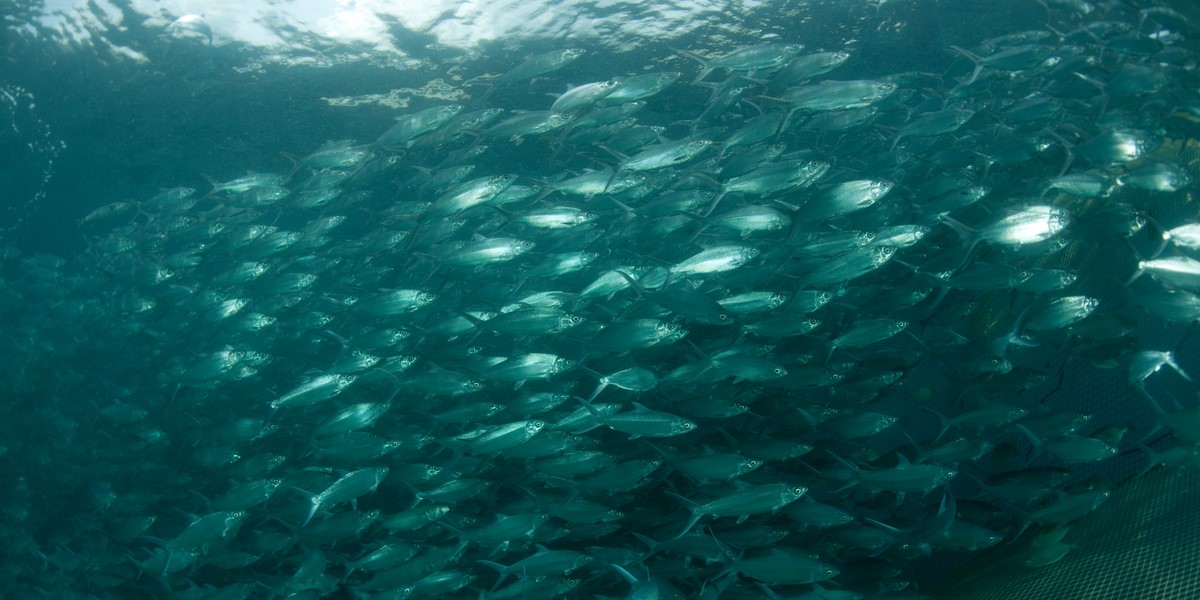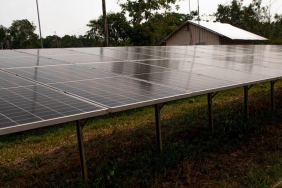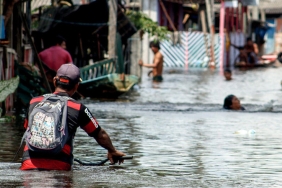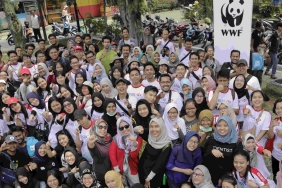FISHERMEN ARE DIVERTED TO AQUACULTURE
People Need to Be Educated about Climate Change
JAKARTA, KOMPAS - In order to anticipate weather disturbances and the impact of climate change, fishermen are directed to switch professions to aquaculture. Currently, the Ministry of Maritime Affairs and Fisheries is inventorying fish catch areas affected by extreme weather.
This was stated by Minister of Maritime Affairs and Fisheries Fadel Muhammad in Jakarta, Tuesday (20/7). He said that aquaculture is an alternative livelihood instrument for fishermen because climate change and nature cannot be resisted. Marine aquaculture that is directed to fishermen include grouper and seaweed.
From the Ministry of Agriculture, Acting Director General of Food Crops and Head of Agricultural Research and Development Gatot Irianto said that climate change is not only bad. There are still many farmers in other regions who benefit because they can enjoy an increase in the price of agricultural products, although not too large.
Utilizing the bay
Aquaculture, said Fadel, can be done by utilizing bays and waters that are protected from high waves.
Fisheries extension workers are now being prepared to change the mindset and lead fishermen to switch to aquaculture. ""This is a tough task because they (fishermen) are not used to it,"" he said
Head of the Marine and Fisheries Research Agency Gellwynn Jusuf said that the high waves in a number of Indonesian waters were caused by several factors, including the Coson storm in the Philippines. Due to climate change, the intensity of storms is now suspected to continue to increase.
Short-term measures
Fadel said that the short-term effort is to distribute emergency aid funds for fishermen at the Ministry of Social Affairs worth Rp 200 billion. The assistance is in the form of rice and basic needs worth Rp 200,000-Rp 300,000 per fisherman and optimizing accident insurance for fishermen.
However, Acting Director General of Marine, Coastal and Small Islands Sudirman Saad argued, ""This (famine) disaster is very localized."
so that it can still be handled by local governments," he said The assistance is in the form of rice distribution from the government. 100 tons are reserved in each district/city and 200 tons in each province.
Head of Research at the Center for Marine Resources and Maritime Civilization Studies Suhana argued that adaptation efforts by shifting the profession of fishermen would not solve the problem.
In fact, it is not easy to change the habits of fishermen. On the contrary, the decline in fishermen's fishing activities has actually become an opportunity for rampant fish theft by large ships. ""What the government needs to do is strengthen the ability of fishermen, not stop their activities,"" said Suhana.
Meanwhile, Secretary General of the People's Coalition for Fisheries Justice Riza Damanik emphasized, to help fishermen, there are prerequisites, namely, first, there must be a security system for ecosystem-based fishermen, for example fishermen in the southern Java Sea waters. ""We must release sectoral and administrative shackles. It is a consortium of fishermen,"" he said. The second is transparency and accountability in decision-making. Both can be done without waiting for funds.
Community understanding
World Wide Fund for Nature Indonesia Forest and Climate Issues Coordinator Iwan Wibisono on the sidelines of a Mass Media Workshop in Support of Conservation, in Palangkaraya, Central Kalimantan, yesterday, emphasized that the government must begin to build public understanding of climate change so that they can immediately adapt because the symptoms of climate change are beginning to appear, such as crop failure due to rain that still falls.
""The government must determine whether this (extreme weather) is happening because of climate change. If that is the case, there should be steps prepared to build community readiness to adapt,"" he said
That understanding means increasing people's capacity to deal with environmental changes and their impacts so that losses can be minimized.
According to Iwan, what the government is currently doing is sporadic so that it does not hit the people, even though the issue of climate change is very real and difficult to understand. ""For the community, climate change is a new thing so it needs to be communicated in a language that is easy to understand. The approach must also be a cultural approach,"" he said
Kumpady Widen, a graduate lecturer at Palangkaraya University, said the issue of climate change has not yet reached rural communities. Even if there is information, it usually only reaches the village head level. The community itself has not considered the issue important because the Dayak people are not readers. ""In fact, the language related to climate change is still too scientific so it is difficult to understand even though the impact is currently being felt,"" he said.
Kumpady also requested that the Dayak community be given the opportunity to apply customary law related to efforts to protect the environment. So far, due to government intervention, customary chiefs tend to be afraid to apply customary law optimally.
Common challenges
In agriculture, according to Gatot Irianto, for rice commodities, prolonged rain in the dry season turns out to be very beneficial. Millions of rain-fed lands can be utilized, which usually cannot be done. Indeed, for certain types of commodities, such as soybeans, there are many obstacles because high and continuous rainfall will hinder growth.
The Ministry of Agriculture, Gatot said, has developed a road map for strategies to deal with global climate change. The plan includes developing infrastructure, especially irrigation networks, to reduce the risk of floods and droughts, increasing the capacity of farmers on understanding climate change, and applying adaptation and mitigation technologies. This is accompanied by the development of flood and drought early warning information systems and crop calendars.
Adaptation measures, said Gatot, are focused on the application of adaptive technology, such as adjusting cropping patterns, using superior varieties that are adaptive to drought, inundation/flooding, salinity, and short life, such as the Inpari and Inpago varieties. An extension system will also be developed as well as an agricultural insurance system due to climate risks and food diversification.(LKT/WER/MAS/ISW)





